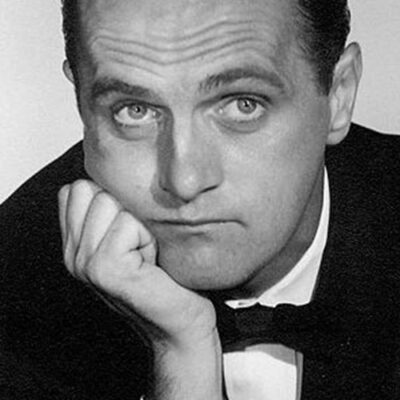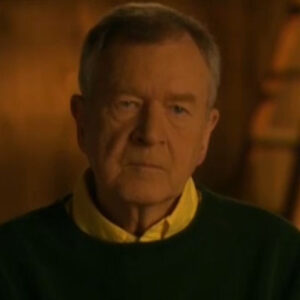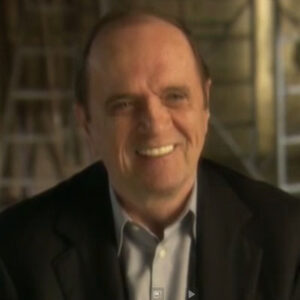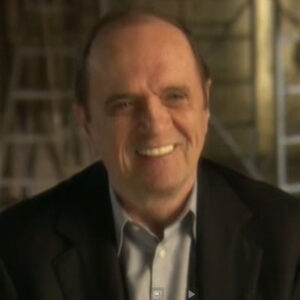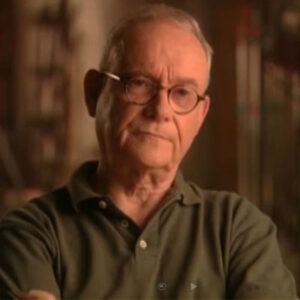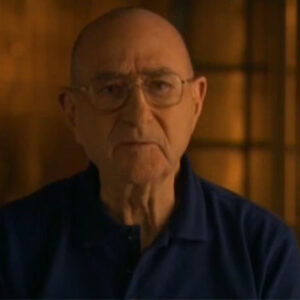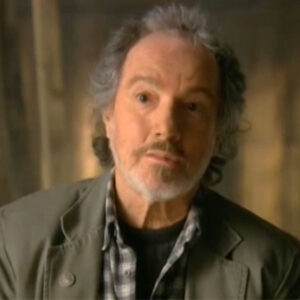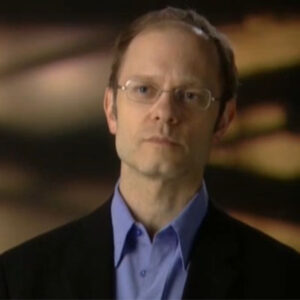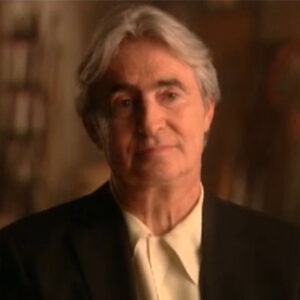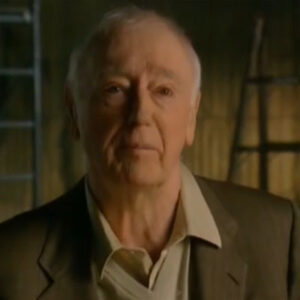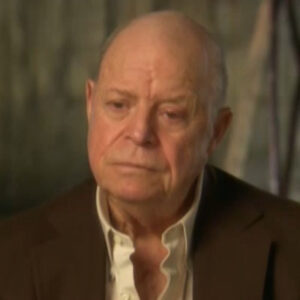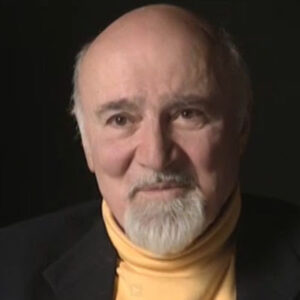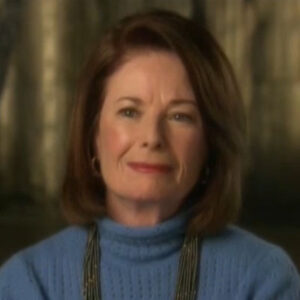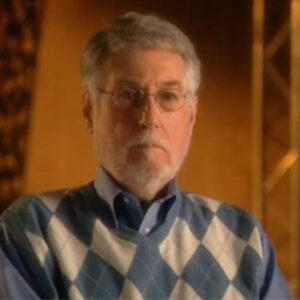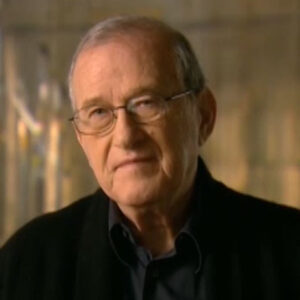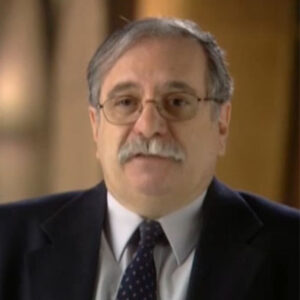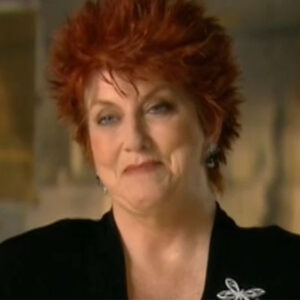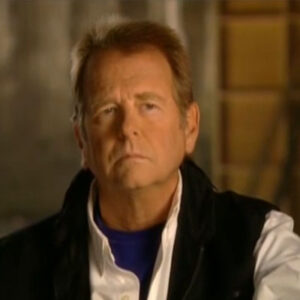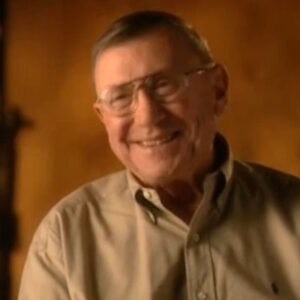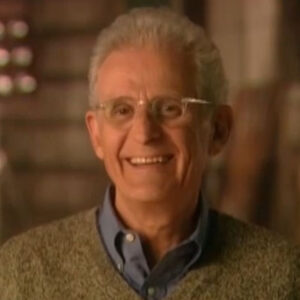Julia Duffy: Laryngitus?
Interviewer: I had a cold, but that’s going.
Julia Duffy: No whisperings harder on your vocal cords, insidious. They actually rub together more when you whisper.
Interviewer: Let’s bring all afternoon. Speeding. So let’s just start with. I just love to know what you knew about it before you worked with Bob Newhart, how familiar you were with his work and perhaps his albums.
Julia Duffy: Well, I was still living at home when Bob’s first show was on The Bob Newhart Show, which is hard for me to believe. Now, I think I was living at home. I was that young and I was absolutely crazy about it. And Saturday nights with that and The Mary Tyler Moore Show was very, very formative experience for me. And I wanted nothing more than to be on a show like that when I grew up. I thought that’s the comedy kind of comedy I would like to do. And I was already familiar with him from I had seen him on shows doing his standup. I had heard his comedy albums. And what I remember is that when somebody said to me, and I do remember this very specifically, Bob Newhart is going to have a comedy show. I thought that’s such a funny idea, to put a standup in a comedy show, a standup comedian acting. That was a brand new idea to me. And I think it was a brand new idea in general. And really, when you think about it, I think that. Comedians before Bob had been in some way. Particularly sophisticated in a Vegas kind of way or outrageous like George Carlin. And then along came this ordinary guy who had the courage to say, I want you to listen to my take on things. And now when I look back, I think that had to be so brave when he started doing that. He was not following in anyone’s footsteps to be that kind of a comedian. And then who had ever heard of a standup comedian being given a TV show where they were acting and playing another person? And it worked so well. And now here we are. We put them in shows all the time.
Interviewer: So you think he paves the way for. That’s such a start.
Julia Duffy: It’s such a standard thing. I know that people start doing standup in order to wind up in a on a sitcom. That’s how people look at the career path. Now for comedy and for sitcoms. And it certainly is a good way to do it. Of course, it’s a great way to cast, because if you have someone who can handle it acting wise, then you’ve also got the star of your show who can be a host and AMC. You get a lot for your buck and I can see why they cast standups instead of actors in comedies. But to my knowledge, nobody had done it before. And I do think he paved the way because it was he did it so well. It was like falling off a log as if he’d always been acting.
Interviewer: Why do you think that is? Is it because of something about his style that lended itself to doing a sitcom or that they just chose the right character for?
Julia Duffy: I think the fact that Bob looks so at ease and has made it so easy to do what he does and to be successful is probably very related to the Bob that I know who doesn’t think that you should be doing comedy unless you’re having fun? He would never understand people having a lot of angst. He would never like a set that was an unhappy set or a stressful set. It’s supposed to be fun. It’s supposed to be relaxed. And it all carries over into the finished product.
Interviewer: I actually do I do you think that you hear a lot of times people talk about comedians, that a lot of their humor comes from pain or, you know, the humor is the sort of defense mechanism. Do you think is Bob at all related to that? Or is he the exception to the.
Julia Duffy: I don’t know if Bob is the exception to the humor comes from pain or not. Because I think there’s much more than meets the eye. And I don’t think he’s a stranger to the kind of pain that you’re talking about. But. I think that I have been on. Let me just say that I’ve been on sets where people weren’t relaxed and weren’t having fun and were very intense and trying to do comedy. And Bob’s right. That’s not the way to do it.
Interviewer: So with new art, tell me how your involvement came about, you were not originally in the first season ever.
Julia Duffy: I was doing a series on CBS called Wizards and Warriors, which was perhaps the first and last medieval comedy series. It was very, very funny. We broke the fourth wall. And it was rather outrageous for its time. And no one did that again until moonlighting. And I was absolutely heartbroken when it was canceled. But I had done a guest shot on the new heart show, which was very fun, playing a character called Stephanie. But she wasn’t the Stephanie that she wound up being. Her character wasn’t delineated like that. And I loved working with Bob. It was so much fun. And they asked me to return and be a regular. So it was sort of bad news and good news. Your show’s been canceled, but we want you to come on a new hard show.
Interviewer: What did you think when you first got here that you would be.
Speaker When I was called to audition for it and I had just done a guest shot on chairs, and it sounded to me like it was very much the same character. And I thought, do I really want to read for this? It’s just like what I just did. Well, actually it wasn’t at all, but somehow it seemed that way to me when it was described over the phone. And thank God I wasn’t that stupid. And I wound up going to the audition and I got the part and I did the guest shot. I had a blast doing it. And then it was over and I thought that was the end of it.
Interviewer: So was it did you think it was pretty amazing that you would be on a series with with someone that you had watched as growing up, as you said?
Speaker I remember when they asked me to be a regular and I thought. I can just picture myself coming home, sitting down and watching The Bob Newhart Show in syndication. It was the only thing that helped me unwind. And it always put me in a good mood. It always made me laugh. He was one of my favorite shows, and I watched it repeatedly in syndication so that I knew every episode by heart and I thought. I remember when it went off the air, I was kind of sad because I thought, oh, I’ll never get to do a guest shot on that show. Now, never I’ll never read for that show, and it will never happen. And I could not really believe my good fortune.
Interviewer: What was your mental excuse me, get out. In this day? I have to choose someone. OK. I’m sorry. Just a moment. Yes. I’ve been watching a lot of old episodes and have hard to are, obviously. And when you look at that show, it seems like, Bob, a lot of times is sort of the calm center and there’s a lot of craziness going on around him. And I wonder if you thought that’s something that works well for his persona and why what why that works comedically for.
Julia Duffy: I think Bob has a lot in common with Jack Benny. He has that incredible courage when he’s reacting to someone taking a long time to respond. And I can’t imagine having the courage to hold so long. But he does, and he’s always had it. And he never fails. And I suppose he came up at a time when there were comedians like that who worked so much on the road and so much with audiences that they could read them. And I’m sure that, you know, it’s comedy is very fast paced now, standup comedy. You don’t see someone take that kind of time. But it’s so delicious. It’s so fabulous when somebody can do a reaction like that. And I think he knew that that’s what he did, that that was his strength. So they just gave him wacky people to react to. And I thought it would be so fun to play somebody. Who was just being very much of a girl around him. I thought it was a wonderful contrast.
Interviewer: They were so.
Julia Duffy: Yes, I think the fact that Stephanie was so involved in being a girl, talking about girl things and being a rich girl to someone is grounded, as Bob was the perfect counterpoint.
Interviewer: Could he make a line funnier just by the way he reacted to it?
Julia Duffy: Oh, yes. There were lines that I would say to Bob. That would never have been so funny to anyone else. I remember one time. I was I think Stephanie was concerned about somebody. Falling in love with her or something. And she said to Bob something to the effect of, you know, you wouldn’t understand what it’s like. But when you look like this and people react to you this way and it couldn’t have been funny or delivered to anyone on the planet than to deliver anyone to deliver that line to Bob. Yeah, and I, of course, completely missed the fact that I was insulting him. I thought that I was probably doing him a favor by confiding in him.
Interviewer: Was it ever hard to keep a straight face during any of those scenes when he’s blogging and reacting and.
Speaker It was always hard to keep a straight face. I could not look at him. We did an episode where Bob and Joanna renew their wedding vows. And I had to be standing next to him and he forgot to write new wedding vows for this big ceremony that she had planned. So he pulled out his wedding vows from whenever they originally got married, 1970 or something. And they were very much written by a young hippie kind of guy. And he started to say, you do your thing and I’ll do mine as he’s reading these wedding vows that were very, very of that time. And he said. I’m just going to skip the part about Cambodia. And I was right next to him and I couldn’t look at him when he said it. And every time he did and I was her bridesmaid holding a bouquet, I just kept putting it up higher and higher so that I could somehow not look at him. And I got through it once, only once.
Interviewer: Was there ever anything? Was there ever any kind of situations or. What about, for his part, was was there any were there ever any situations where that would crack him up that you can do things that would make him break character? What made him laugh?
Julia Duffy: There were many things with animals for some reason. There were a lot of animals on the show, I’m not quite sure why, but I can remember several shows like that where he just had a horrible time keeping a straight face. We did a show where there were a lot of miniature horses because on his talk show. They were trying to find the world’s smallest horse and everybody from all over Vermont were bringing in their horses, tiny horses, including a woman who brought in her basset hound wearing a saddle. It was that kind of wackiness. And, of course, you know what one of the horses did during a take. And it was just painful to try to keep a straight face as we were doing it. I mean, we never kept a straight face during rehearsals. So it’s not as though we were well rehearsed by the time the audience came in and talk about the process. I don’t think Bob like to rehearse too much. The interesting thing is that when we did rehearse, he got something out of it every time. He never wasted a rehearsal. But the rest of the time, all we did was try to make each other laugh. And I can remember having an absolute feeling of panic on Friday night when the audience came in realizing that we had never gotten through the scene without laughing, not even once. And I’m sure that people couldn’t believe we were getting paid for what we were doing, which was laughing all day long.
Interviewer: How? And what about in terms of the writing, I know he wasn’t one of the writers, obviously, but he had written his own material, you know, for the albums. And he obviously is a good writer. Did he? How was he involved or not in that regard?
Julia Duffy: The involvement that I saw in the writing process is that every now and then Bob would say there could be stronger at the end. We could use a stronger button on the scene. And that’s about all I would ever hear him say. And he didn’t say it that often. So I think it would be foolish for any writer not to listen to him when he said it because he didn’t say it that much.
Interviewer: So was it just that the writers knew what works for him and what didn’t? From from the get go then?
Julia Duffy: Well, we had a lot of different writers on that show, and I think that they pretty much knew what worked for him, for him. When when Bob had a problem with the writing, it rarely had to do with it being wrong for his character. It was just was it right for the scene? Was the rhythm right where the joke strong enough?
Interviewer: When you look at both of those shows, the Bob Newhart Show and then Newhart, obviously different setting. He had a different character, all those things. But was there anything that was similar between them that sort of points to what works for Bob?
Julia Duffy: Well, the thing that was the most similar about the two shows is that he was surrounded by wacky characters to react to in the first show. That was pretty dependent on the group and his group therapy session by putting him in Vermont in a small town in our show. It gave them even more wacky characters because there was no one in that town who behaved, who behaved like a Grown-Up, let alone it halfway normal. And there was no end to the kind of characters you could bring into the in.
Interviewer: I read somewhere where you had said that you compared him in some ways to Charlie Chaplin, and I was wondering if you could talk about that a little bit and what you meant by that. That’s what I mean. I think you were talking about his use of sight. I mean, obviously, there were silent movies, but just his use of the timing and pauses.
Julia Duffy: The similarity would be between Bob and Charlie Chaplin or any other silent comedian is that he knew how to use silence. And he did use silence for a fact. He just has an ear for it. It was very interesting. One time we had a drum set on the show because we were gonna have a band and a scene or something. I’m not even sure. And he would sit down every now and then between takes over between rehearsing scenes and he would start to play the drums. He’d great, great rhythm. And that now I realize that he had a good ear and a lot of ways, not just for comedy.
Speaker What are what were your favorite kind of moments to see him in? That’s it. Were there certain kinds of situations that were just the most funny to see Bob in?
Speaker I always loved it when Bob was talking to George, to Tom Poston character, and George would sort of lead. Dig down this path in the conversation, and he would sort of get lost trying to follow George in the conversation. And then George would wind up feeling put upon because Dick wasn’t saying what he wanted him to say. And I thought those were hilarious. I thought they should have just extended conversations like that. I didn’t care if they furthered the plot. I always wanted to see more of that. Yes.
Interviewer: What was was cast with the cast did hang out.
Julia Duffy: We were incredibly close. We used to sit in the green room during camera blocking when we were supposed to be running our lines over and over. And they come and they very quietly shut the door because we were laughing so hard and we shared so much during all of those years. Our kids were growing up. My babies were born. One of them almost on the set. And it was very much like a family. We were all from different generations. But the five of us shared a very strong feeling of. Just a devotion to finding the funniest way to do anything, to always find the joke.
Interviewer: Tell me how long this show was done in. I know that he always insisted for all of his shows on. Recording in front of a live studio audience. And I’m wondering if you noticed how it was that important to him in terms of gauging the response and whether.
Julia Duffy: It was so interesting that the audience was everything to Bob, and I learned that anybody who’s done standup. Puts the audience first. Nothing matters except the audience. And he would come in after a show aired and say, I couldn’t hear the laughs or it sounded like a laugh track. And his ear was always incredible. He was like a musician listening for the audience all the time. And he would be listening in the first few minutes of his show to hear if the audience was good or how hot they were. And when we had a great audience, he’d want to move it along very fast because he’d be so afraid of losing them. And it was a TV show. The main part of the audience were the millions sitting at home watching it. But it didn’t matter if there’s an audience there to laugh. He is so focused on that and has such an ear for it. I’ve never seen it so precise and so fine tuned as it is with him. I think every sitcom makes their own laugh track in their own studio because there are sometimes scenes that take place in a set that’s very far to one end or the other. And you’re not going to get the laughs that the scene requires because they don’t see it well. We were not a taped show. We were film. And in those days, you didn’t have monitors with film. So the audience had to look all the way down this the length of the studio sometimes to see a set at the edge. And it was very hard to for them to laugh. They couldn’t see all the cameras were in the way.
Interviewer: I was thinking to that sort of remarkable is that you had the one show and then it lasted six years, I guess. It was eight years. And if you could just talk about how unusual that is to have to shows that go that long.
Julia Duffy: Anybody who has. Well, no, I’ll back up just to work in this business. It’s an incredible privilege to have a hit where you’re going to come back every year and you have a steady job is the rarest of experiences in this business to have a second hit. And once again, have that family have that steady job. That thing that you can count on is probably unparalleled. And I can only think that the reason that it happened with Bob is that you don’t get tired of him. And that’s the what would I say? That’s the X Factor. I always felt that way about Alan Alda. You could watch MASH. Year after year. And Alan Alda was in every scene. He didn’t do many scenes without him. It was a lot of Alan Alda. But he had that thing where you could watch him and not get tired of him. And I believe me, if I could figure out what that was, I’d be on my tenth successful series. And Bob has that X-Factor. You absolutely don’t get tired of him. What you’re seeing is so genuine. You’ll never get it from anyone else. You’ll never laugh like that at anyone except Bob Newhart. And I guess that’s why it never gets old.
Interviewer: So many years. And how it was received over the course of critics, Newhart ran eight years.
Julia Duffy: It could have done a ninth year. We were asked to Bob thought that it was time to end it. And during that time, we were always a little bit overshadowed by the Thursday night comedies on NBC. This is when NBC began to dominate in that way. And yet the bigger story is that Bob was holding his own against Monday Night Football year in and year out. And no, what what other half hour show could hold their own against that? Because that’s when NBC sorry. That’s when Monday Night Football was one of the biggest things on television. And during that time, I’m not sure the show got its do because it wasn’t as hot a show from the critics standpoint, although the reviews were always excellent. It wasn’t a hot show like the Thursday night shows on NBC. And that was always sort of hard for us. But the wonderful thing that happened was that we got a sort of reverse press when we didn’t win Emmys we were nominated for. There were outraged articles in newspapers the next day. We had articles in Time magazine, Rolling Stone, Vanity Fair, long articles going on and on about how overlooked this gem of a show was, and that was the kind of press you couldn’t pay for. And I liked that. I liked that we were the show that wasn’t hip but was hip because it was so unhip. And I think that’s why the show wound up becoming David Letterman’s favorite show.
Interviewer: I didnt know that.
Julia Duffy: Oh, yes. He was a huge fan.
Interviewer: So the show was a few times never once the show was nominated.
Julia Duffy: Writers were nominated. Actors were nominated. And it finally won in the last year of the show for the final episode.
Interviewer: For the best series.
Julia Duffy: I can’t remember if it was writing or series. Isn’t that awful? I think it was a writing.
Interviewer: Yeah, talk about. You’re saying that the show could have gone another year and that you were asked, but Bob had decided to talk about what you knew about his decision to end it. And what you knew that his reasons?
Julia Duffy: Well, I knew that Bob didn’t want the show to go on past the point at which it was fresh. And. I knew that he. He was really concerned about putting people out of work. And you really can’t look at things like that when you’re a star. You have to say I I created a show that gave them eight years of work. But he didn’t look at it that way. That did weigh on him. But I think in the end, he felt that it wasn’t going to have the quality that it had had. He couldn’t bear to be around to see it. It had been such a magical experience and he couldn’t bear for it to be anything less than that. And I’m sure he made the right decision. I don’t think one year would have made a difference one way or the other.
Interviewer: Do you think it was that that sort of comic’s timing, that they have to have to be on stage?
Julia Duffy: Well, I remember Jerry Seinfeld said I always knew when to get off. And I’m sure that Bob had that to. I didn’t question it.
Interviewer: Did anybody did people try to talk him into a.
Julia Duffy: I wouldn’t know if people were trying to talk him into it. None of us were. I think we were all completely trusting his judgment and he was very gracious about asking us what we thought. But there was no question in my mind that it had to be Bob’s decision.
Interviewer: Talk about the secrecy surrounding that.
Julia Duffy: I remember that they leaked out a fake script. Which worked very well. I think they had learned from a few other shows that had had final episodes. What they had to do in order to keep it a secret. I know that no one in the audience knew that Suzanne was in the building and she was there sometime in the middle of the afternoon. She came and she was there all the way through until we did her scene. Nobody knew she was there. And to have an audience full of people watching this and still not have it leak out in the press because I’m sure another six weeks went by before it aired was quite remarkable. I don’t know how they did it. Well, this was before the Internet, though.
Interviewer: That’s true. You can never get away with that today. Tell me about what you remember about that, that episode and the audience reaction and the mood around the said.
Julia Duffy: I remember it so well. It was a very exhausting episode to do, it was a huge, complex storyline. It was a very funny episode, even without that last scene. And that was good because we were working hard. It was a tiring episode to do. It was almost unbearable to even make eye contact with anyone, we were so weepy. And when they did the scene with Suzanne, I was standing next to Mary with my arm around Mary, and we could hear the audience as soon as they brought up the lights and there was just two people in a bed. You couldn’t see anything, but they saw the set and they knew the set from the old show. You could hear the murmuring in the audience. They were starting to laugh already.
Interviewer: They set up.
Julia Duffy: Yeah.
Interviewer: And what talk about the public reaction to that, and I guess its people say it’s one of the best.
Julia Duffy: People still come up to me on the street and say, I loved that last episode. It’s kind of funny because it was just one week and I was there for however many weeks, one hundred and some weeks. But now it’s kind of come down to that is. And I guess there’s something to be learned from that. It’s how you make your exit.
Interviewer: What do you remember about what the feeding tube? So if you could set up the storyline for us a little bit less.
Julia Duffy: Well, I remember when I saw the script, I had been told what the story was, but it was so funny because it was a very edgy idea to have the inn bought by the Japanese. That was that’s a more common concept now and joke area. But it wasn’t then and in this dream sequence that Bob has, because he’s been hit in the head with a golf ball, the Japanese have bought the end and all of these things have happened in the future. We’re all older. Michael and I come back. We have a little girl who’s way too much like me. And the townspeople are all putting on a production of Fiddler on the Roof. And then we are singing the final song from Fiddler when you have to move on. And it was rather brilliant. All of these levels of something ending. But of course, this was all inspired by the ridiculousness. And yet the effectiveness of what the Dallas last episode was, not the Dow at last episode. But the Dallas episode where Bobby wakes up and realizes the entire season has been a dream, which was such an outrageously ballsy thing to do on the part of the writers and to capitalize on that was a stroke of genius. The whole dream part of it was so funny all by itself.
Interviewer: Do you remember you talked about the casket being very sad during that filming, that episode? What was Bob like? I know he’s not particularly emotional.
Julia Duffy: We did a little thing every night before the show. The five of us waited to be introduced and we’d have a little circle and we’d say good show, say a few things to each other, and Bob would murmur it quickly and walk away. But he didn’t miss it ever. He he went through with our little ritual every time. And he came over to the group so reluctantly that night. And Mary and I both started to say something. He said, OK, OK, that’s enough, that’s enough. He really was afraid of getting too emotional and he knew what it was going to be like. And he’d been through it and he knew that. It’s almost like someone has died. It’s a tremendous amount of grief to lose a situation that’s been that perfect. And now it was happening to him for a second time and he knew we had to be funny.
Interviewer: So he didn’t articulate it, but you felt it. Yes, I know it was there. You get started on one of his later series things.
Julia Duffy: Oh, yes.
Interviewer: And I’m just wondering what you thought of those two later series and why they may not have succeeded on the level that the former two.
Julia Duffy: I saw enough of George and Leo to know that it was a great idea to pair him with a younger guy. I thought that was, you know, that was the other one way we would have to go back.
Interviewer: Yes, George and Leo. Judd Hirsch.
Julia Duffy: Yeah, I didn’t see charge very much. What was the other one called?
Interviewer: Bob.
Julia Duffy: Bob. Right. When I saw Bob and our joke was that his next show would be called the. I thought it was a brilliant idea to Perram up with someone younger, as they did with his son, his rather needy, not leaving home son. And I still think it’s a brilliant idea and I still think he should do it. I think he should be back on the air. But it’s very funny to have someone like Bob who is now older and he had hip in a way that no one who’s young could ever be hip. Now. To pair him up with someone younger would be the perfect meeting of generations. And I thought that show had a lot going for it. You know, they say there are no bad shows. There are only bad time slots. There’s a lot of things that go into why a show makes it and doesn’t make it. It’s just serendipity sometimes. But I would love to see them try it again. I recently worked with two 17 year old boys, actors who were discovering Bob’s comedy albums on vinyl. And they thought he was the coolest. And I thought, why isn’t somebody putting him back on the air? Because he is the coolest. Look at Tony Bennett. Bob’s got the same kind of cool.
Interviewer: Two, what do you attribute that timelessness? Is that his material on those albums, which was written 40 years ago? Can still be funny to a couple of 17 year olds today.
Julia Duffy: I don’t think Bob was interested in current humor. I don’t know if he ever said to himself, I want this to be funny 20, 30, 40 years from now. I’m not really sure how he made that decision. But I do share that with him, that I would like anything I put that effort into. To be funny many years from now. And if you do very current humor, it’s not funny next week, although there’s a place for it. And taking that route, put him up there with Sid Caesar and everyone else that you can still laugh at. And he does come from a time when that purity of humor was appreciated. No one talked about Edge then. Nobody used the word edge. Certainly George Carlin had edge. But people still didn’t use that word. It wasn’t a necessity to be funny.
Interviewer: Do you think Peter Bonar’s to succeed until you have to have some edge and yet be comfortable enough for audiences to take you in week after week? It’s pretty rare that somebody would have both. Does Bob have both of those things?
Julia Duffy: Well, I think that Bob does have an edge. But I don’t think you can define it by the kind of edge people have today. Now, when somebody writes a sitcom, there’s edge and cynicism in the first episode and you really have to earn that later after you know the characters, you need to like them first. They don’t do it that way now. I think they’re sort of putting the cart before the horse.
Interviewer: You had a good PG story out there.
Julia Duffy: Bob was so quick. Sometimes he could just devastate you with.
Interviewer: Wait, before we start right now. Let’s go for it. Yes. Ready?
Julia Duffy: Bob had a way in real life of devastating you with a quick, funny line. That’s the most perfect thing to say at a given moment. A lot of those things can’t be repeated because he has a much wilder sense of humor in person than most people know. But I remember we had a guest actor on the show, a lovely guy named Jake, who was very funny in his role. But unfortunately, the actor wasn’t used to working in front of a live audience. And on taping night, he froze. He could not remember his lines and he just froze. It was quite painful. And we did wind up having to reshoot those scenes the next week entirely with someone else. And about a week after that, we did a show with a dog. No one ever looks forward to that because dogs generally don’t have comic timing or they don’t do the thing that you’re supposed to react to on cue. And the actor Steve Kampmann, who played Kirk in the first year of the series, had a lot of business with the dog, and the dog was acting very sweet, whereas his character was supposed to be afraid of it. The dog was doing everything wrong and Steve was getting more and more nervous about his jokes working. And one morning we come in and the dog has been recast and we have a new dog there and the dog is brought over to meet us. And Steve comes in and sits down and says, oh, got a new dog. And Bob said, Yeah, but I hate to tell you this, Steve. His name is Jake. And it is something I’ve never forgotten because he couldn’t have said anything more perfect.
Interviewer: So funny. The dog was going to freeze.
Julia Duffy: Yeah.
Interviewer: What would you say, do you see Bob having a legacy in the comedy scene and whether it’s on TV or in stand ups? What do you see? His legacy?
Julia Duffy: I’m always telling Bob that it’s time for him to be a legend already. And I think that when you are playing some sort of every man character, when that’s your persona, it’s going to take you longer to be a legend than somebody who’s out there breaking the rules more. But I don’t think that there’s anyone like Bob. I think he was a natural successor to Jack Benny and George Burns. I think he brought comedy from that time that has its roots in vaudeville. He brought it from that time into this time. He is absolutely the person who did that. And future generations will look back. Not so much to Jack Benny in vaudeville as they will to Bob, having started this tradition of comedy, of this contemporary stand up comedian and the contemporary sitcom.
Interviewer: Can, can you point to anybody but you CEOs following in his footsteps, so to speak, or that’s sort of come out of that tradition that he’s established?
Julia Duffy: Well, certainly when I see comedians like Jerry Seinfeld and Ray Romano, they have to have been influenced by the guy who walked out there with no Vegas Polish, no edge and said. I want you to listen to how funny I think bus drivers are. That has to have paved the way for them.
Interviewer: That’s great. Thank you so much. And, you know, since we have a bit of time, I did have a knock. I heard the knock shadows stirring things during that last day. Oh, I’m sorry. I could repeat. We try to find those people in. OK, when did it would be fine, but it it was like, you know, I had this part of my mother since it’s but they’re OK out here. The voices. Yeah. So I could just ask you to repeat that last question, which was if there were any people today, comics and so forth, that you can point to as following in this tradition.
Julia Duffy: Well, I definitely think that people like Jerry Seinfeld and Ray Romano, Ellen DeGeneres. Have to have felt that he paved the way. They must have been influenced by him because before him you had to have Vegas Polish. That was a time when the Rat Pack was the epitome of cool. And this guy walked out on stage. And he stood there like this and he said, I want you to listen to what I have to say about bus drivers and why I think they’re funny, me, the mild mannered accountant. And they took more courage than anything George Carlin did. And I really think that he was the transition from the time of vaudeville and that led to Jack Benny and George Burns and the contemporary comedians of today and the sitcoms of today and the future. I think it was Bob who started it all. And I think these generations coming up will probably look back at Bob the way our generation looks back at Jack Benny and George Burns as beginning this tradition. And I do think he’ll be the legend that he deserves to be with enough time.
Interviewer: So perfect. Thank you. Do you have any other stories or they all can be repeated television.
Julia Duffy: They’re so bad. They’re so bad. I was trying to think of another one in the car on the way over the Jake one always. I think that I hope that actors did. I think he’s dead. Because it was so funny. No, I can’t really. Everything that comes to mind is the more outrageous variety.
Interviewer: No problem.

